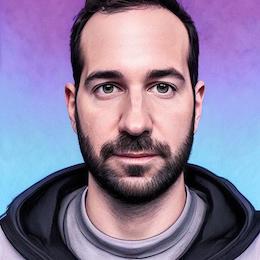
“The Pathless Path” tells Paul Millerd’s journey of going from traditional employment (GE, McKinsey) to embarking on a journey to follow his interests and eventually becoming a writer after going through difficult times due to health problems and loss of loved ones. Watching videos of Paul, I loved his calm energy. He’s very affable: humble, goofy, and excited like a grown up kid. His book resonated with me because I’m in a similar life stage, on a sabbatical, exploring different interests and paths beyond my software engineering career at big tech companies.
Here are some of my notes from the book:
If work dominated your every moment, would life be worth living?
The longer people stay at a company, the higher odds that they would become what the company wanted.
Prime candidates for burnout were those who were dedicated and committed, trying to balance their need to give, to please others, and to work hard.
The most common regret? Not staying true to themselves in their lives and focusing too much on what others expected of them.
Misery tax: This is the spending an unhappy worker allocated to things that keep you going and keep you functioning in the job. For me, it was a mixture of alcohol, expensive food and vacations.
Arrival fallacy: The idea that when we reach a certain milestone we will reach a state of lasting happiness. For years. I believed that once I had achieved an imaginary future leadership position, I would then finally be able to be myself.
Life scripts are culturally shared expectations as to the order and timing of life events in a prototypical life course. Most of these moments occur before the age of 35: graduating from school, getting a job, falling in love, and getting married. This means that for many people, expectations of life are centered around a small number of positive events that occur while we are young
My biggest barrier was my inability to imagine an alternative life. I started looking for another job. I still thought the perfect job was just around the corner. There was no dream job to be found.
We must let go of the life we have planned, so as to accept the one that is waiting for us.
I hadn’t set out to prototype a life beyond full-time work, but through freelance projects, coaching, paid speaking, writing and connecting with people online, I achieved the same result.
Many people dislike some parts of their jobs. But they stay in their jobs because their suffering is familiar. To change would be to trade the known for the unknown… They learn to sidestep the manipulative manager, or change jobs every couple of years, plan vacations, stay busy, and get drunk during the weekend. Uncertain Discomfort < Certain Discomfort + Coping Mechanism
Most people want to contribute, help, and engage with the world. People in their 60s and 70s, while they often don’t have full-time jobs, they enjoy working part-time, volunteering, learning new things or finding other ways to contribute.
The spirit of a mini-retirement is about testing different circumstances to see if you want to double down on them or change directions.
I’m orienting my work around taking every seventh week off from work no matter what.
On the pathless path, the goal is not to find a job, make money, build a business, or achieve any other metric. It is to actively and consciously search for the work that you want to keep doing. Once you find something worth doing, working backward to build a life around being able to keep doing it.
What I want to keep doing, such as mentoring young people, writing, teaching, sharing ideas, connecting people, and having meaningful conversations, is worth fighting for.
Despite dealing with post-traumatic stress disorder, many of the soldiers wanted to return to dangerous war zones. Why? Because at war, they felt part of something, deeply connected to the men and women they were serving with.
The ultimate way you and I get lucky is if you have some success early in life, you get to find out early it doesn’t mean anything. Which means you get to start early the work of figuring out what does mean something.
If your success is not on your terms, if it looks good to the world but does not feel good in your heart, it is not success at all.
Oprah Winfrey argues that each of us has a personal calling. The best way to succeed is to discover what you love and then find a way to offer it to others in the form of service.
Instead of thinking about what I want to do and how I want to live, I start instead with what I don’t want to be doing and what failure looks like.
Biggest risks for me are spending my time doing things that undermine my ability to stay optimistic and energized, and obviously running out of money.
Only by taking action do we learn and only by learning do we discover what we want.
“What would I end up doing with the increasing earnings?” I decided I would use the time to write. Then I realized that there was nothing stopping me from doing that at the moment. So I decided that instead of scaling my course, I would write this book.
The book also has a good bibliography, referencing works from Agnes Callard, Eric Fromm, and David Whyte that I look forward to reading. Overall, I enjoyed reading about Paul’s journey and his perspective on work.
